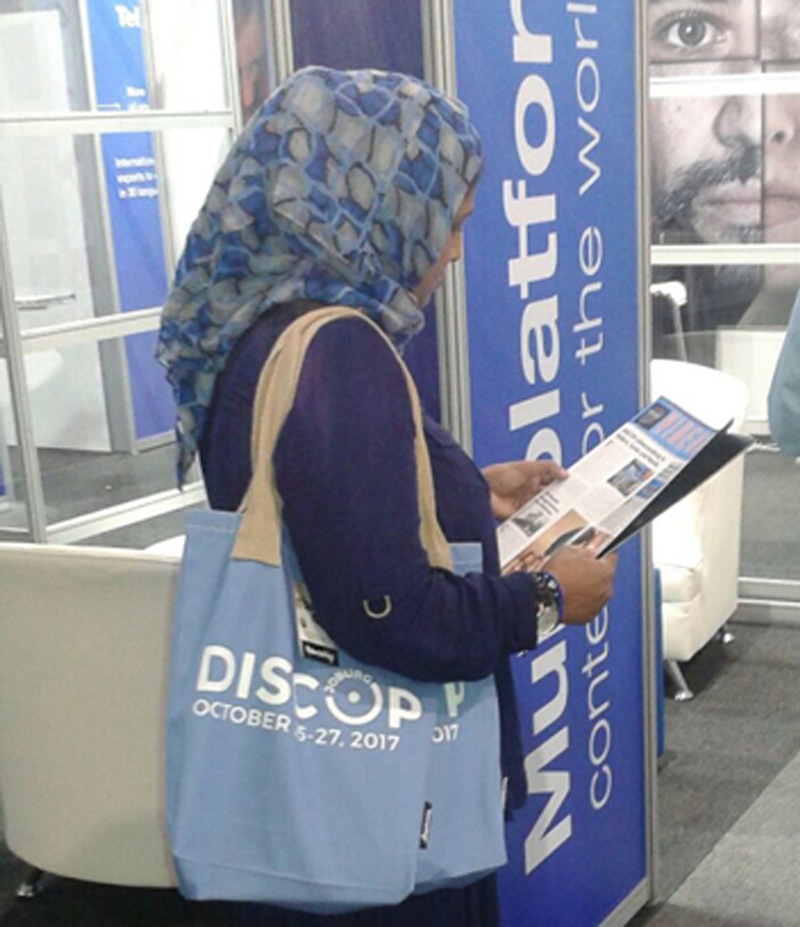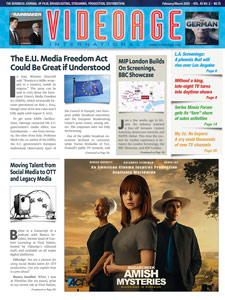One of the cover stories in last month’s Issue of VideoAge covered MENA territories — the bread and butter of the upcoming DISCOP Africa event in Johannesburg, South Africa, which will be held November 14 to 16, and which is organized by the Los Angeles-based Basic Lead.
Last month, the Los Angeles-based Independent Film & Television Alliance (IFTA) released a report on MENA, which stated that in Africa, international players are investing in cinema construction, nations continent-wide are transitioning from analog to digital television broadcast, and new regional pay-TV networks and VoD services are steadily gaining strong subscriber numbers.
The African continent includes 54 recognized sovereign states. How-ever, as a film and television sales territory, much of the continent is often licensed together, divided by language. English-language rights are typically sold to South African distributors who buy for their home states, surrounding nations, or the entire continent. Rights for French-speaking Africa are usually included in a deal with a French distributor who then sub-distributes to the continent.
Arabic rights are usually sold to Middle Eastern distributors who buy for all of the Middle East and North Africa.
Outside of South Africa, there is a limited theatrical market for independent films. Companies such as France’s Vivendi and IMAX are investing in theaters in the hopes of raising ticket prices and bringing larger audiences to the cinema, but it will be a number of years before the market is developed enough to support meaningful revenue.
On the television front, the main obstacles are low TV household penetration and the ongoing transition to digital television broadcast, which will allow a greater number of channels to broadcast at lower costs. Nonetheless, the increased number of TV channels is creating more demand for international programming.
Emerging pan-African pay-TV networks like StarTimes, Zuku, and Econet’s Kwese TV are stirring up competition in a territory historically dominated by MultiChoice’s M-Net and Vivendi’s Canal+ International.
While the established pay-TV networks have output deals with major U.S. studios, the new companies are looking for exclusive content and acquiring from the independents. When selling to a pan-African pay-TV network, the deal can be as broad as the entire continent — including adjacent ocean islands.
As the majority of pay-TV networks broadcast across a number of nations, deals often include multiple languages and territories, as well as any or all on demand or digital streaming rights.
Despite very low Internet penetration, poor broadband speeds, and lack of credit card penetration, VoD services are growing in popularity. SVoD is the most profitable sector with international players such as Netflix, Amazon, and iFlix, as well as regional services including Showmax, Traceplay, and Nuvu.
Similar to pan-African pay-TV, these services often buy regional rights, including several languages and territories.
DISCOP Eyes Expanding Turkish TV
Basic Lead, organizers of DISCOP Johannesburg, expect more than 1,500 participants at this year’s edition, including over 400 buyers and over 200 global and regional distributors, which is on par with last year’s numbers.
In addition to organized meetings for production and acquisition executives, the three-day content market offers several sidebar conferences, including DISCOMICS, which was developed in partnership with South Africa’s African Animation Network.
This year, DISCOP’s Next Gen agenda focuses on Africa’s animation industry, but the conference portion also includes panels on new mobile distribution models, blockchain technology disruption, and the relationship between content and music.
The South African market is spotlighting Canada as its guest country. This announcement dovetailed with the recent launch of a dedicated incentive organized by the Canada Media Fund and the National Film and Video Foundation to foster co-development projects between Canadian and South African producers.
MIP Cancun will be taking place at the Moon Palace resort in Mexico at the exact same time as DISCOP, which could present problems for companies whose sales forces aren’t large enough to attend both.
But Istanbul’s Calinos Entertainment isn’t one of those. “Our sales representatives in Africa and Latin America will be present in both markets,” said Belinda Wango, Calinos’ sales manager for Africa.
When asked if Calinos would be presenting different product at DISCOP than it offered at the recently concluded MIPCOM, Wango replied, “We’re presenting the same catalog of films and series at both markets, but we will have new, very exciting titles for NATPE Miami,” which takes place in early 2019.
But for now, Wango’s focus is on DISCOP. In her opinion, the fastest growing territories in Africa are Ethiopia, Ghana, and Tanzania.
And, she added, Calinos mainly sells content rights by territory. “Buyers from the African region don’t ask for both English-language and French-language rights,” she said. “Apart from the official languages (English, French, Arabic, and Portuguese), Africa has ethnic languages, so in some cases buyers may ask for local language rights,” she concluded.
Audio Version (a DV Works service)












Leave A Comment